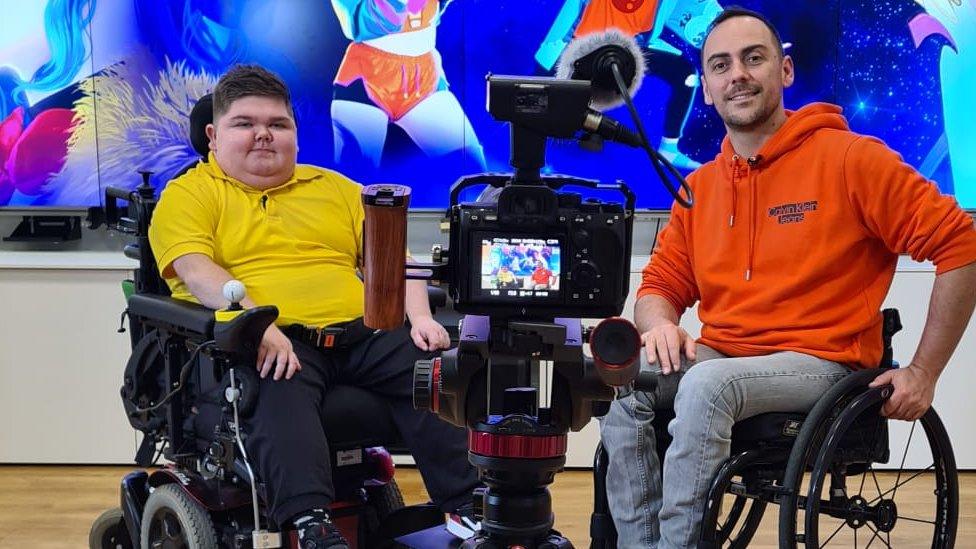Paralympians urge Nike to allow single shoe sales
- Published
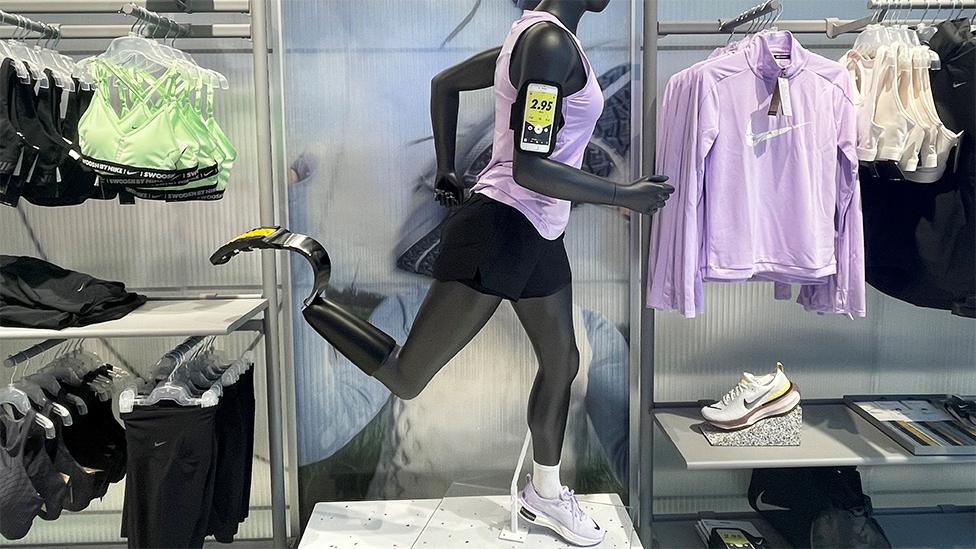
Nike uses amputee mannequins to promote its products
A Paralympian has criticised Nike for using amputee mannequins to promote its products when it doesn't sell single trainers.
Stef Reid, a single-leg amputee, said she was only able to buy the company's running shoes in pairs.
She told BBC Newsbeat companies that portray "an image of diversity and inclusion" should back it with action.
Nike thanked her for raising the issue and said it was "exploring opportunities".
It added that it hoped to learn from its One Shoe Bank programme, currently only available in the US.
The scheme provides single-leg amputees with one free trainer each year free of charge.
Stef, who has competed at Beijing 2008, London 2012 and Rio 2016, lost part of her right leg in an accident when she was a teenager.
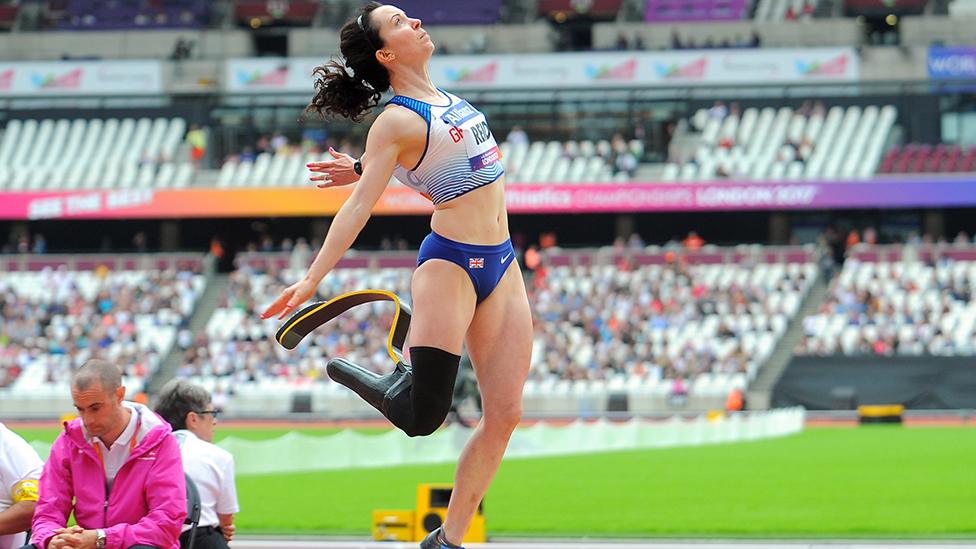
Stef has competed in the F44 long jump and won two Paralympic silvers, and was crowned world champion in 2017
After spotting a pair of Nike trainers in one of the brand's own stores, Stef, who has competed for Great Britain, says she was told she had to buy both shoes.
When Stef explained her situation, and pointed out that the shop was using one-blade, one-shoe mannequins, she says she was offered "a one-time discount".
The retired athlete says she has "no problem paying" for her hobby, but can't understand why she's paying for a product when she has to "chuck the other half out".
"I'm still only going to have one foot, so this isn't a solution. And it's bigger than me," she says.
Stef says she doesn't want "a one-time solution", but wants to be heard.
"This isn't just about me. They said they were going to take it to higher up.
"I just want a conversation with Nike."
'Finding a sole-mate'
British Paralympic athlete Sophie Kamlish also feels "companies should do more".
"Nike are using the image of inclusion, which is really cool. You wouldn't have seen that a few years ago, but they're not being as helpful when it comes to buying one shoe," the 27-year-old tells Newsbeat.
Sprinter Sophie has competed in T44 events and represented Great Britain at London 2012 and Rio 2016.
"It's irritating and annoying because I've got these perfectly good shoes just hanging around my house that I have to throw in the bin, or not use at all," she says.
Sophie, who lives in Bath, says she's "been very lucky" to find a shoe-swap partner with someone who had an opposite side amputation.
"But it's quite a rarity to be able to find that sole-mate," she says.
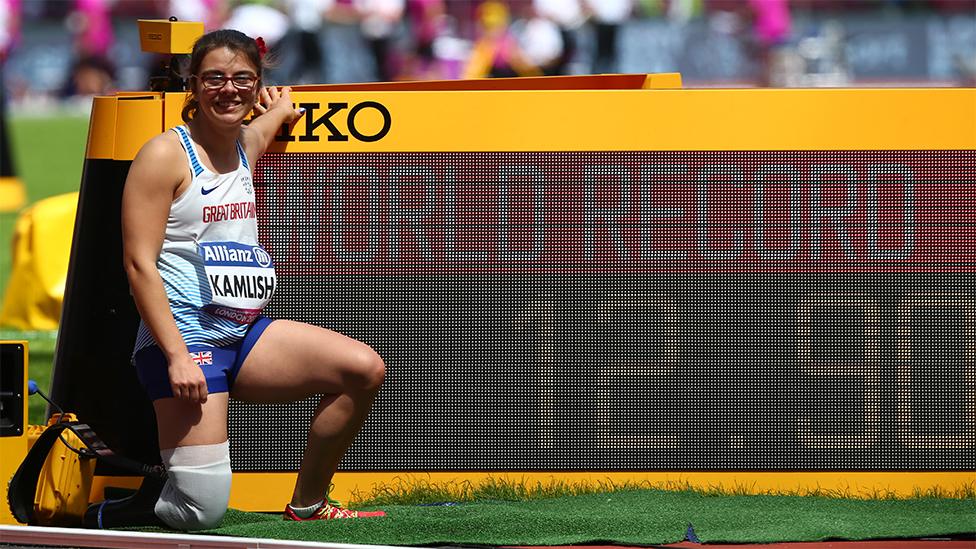
Sophie supports Stef's call for change
Josephine Bridges, founder of charity Positive Bones, adds that one-shoe could benefit everyone, including people who aren't amputees.
"There are people who have shoe sizes that are slightly different on each foot. And so if we're able to buy one shoe, there's a real benefit there.
"Sometimes you have one shoe that wears out much faster than the other.
"It could mean that people could be less wasteful by getting that one shoe replacement."
Josephine had her amputation in 2018, and agrees "more representation" is a good thing.
But when it's not followed up with actions, "it can it can kind of cut a bit in the gut," she says.
Stef feels it's not a case of companies being "intentionally non-inclusive", but more a case of "nobody's asked the question".
"Often I think it's an oversight," she says.
"I don't have an expectation that every company is going to cater to me as an amputee, at a financial loss to them.
"But diverse and inclusive thinking can lead to a better way of doing business."
In a TikTok video, Stef, who won T44 bronze in 2008 when previously representing Canada, also spoke about other companies - Decathlon and Brooks Running - having similar policies.
Brooks told Newsbeat it's "a brand that believes in the power of a diverse running community" and was "looking into solutions to fill" requests for single shoes.
Decathlon has not yet responded to Newsbeat's request for comment.


Related topics
- Published20 January 2024
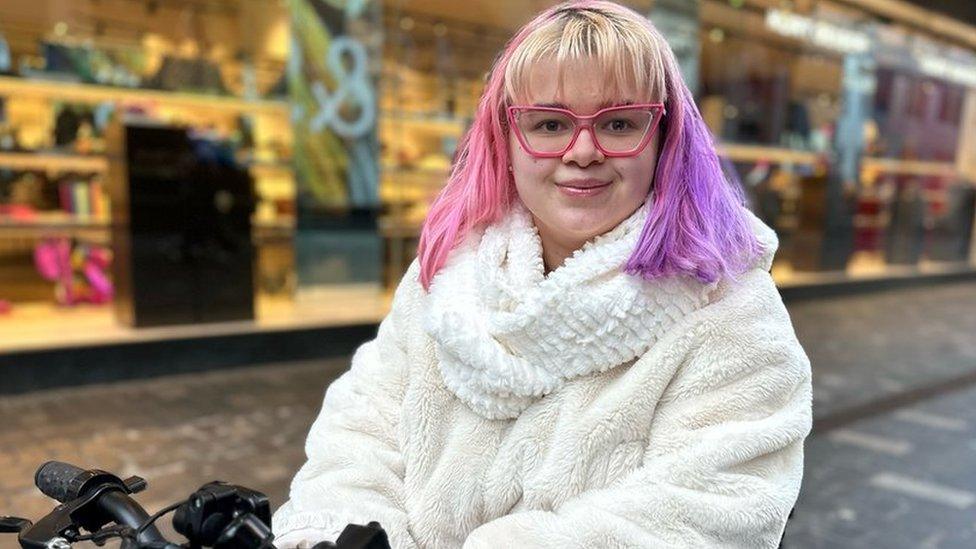
- Published8 December 2023
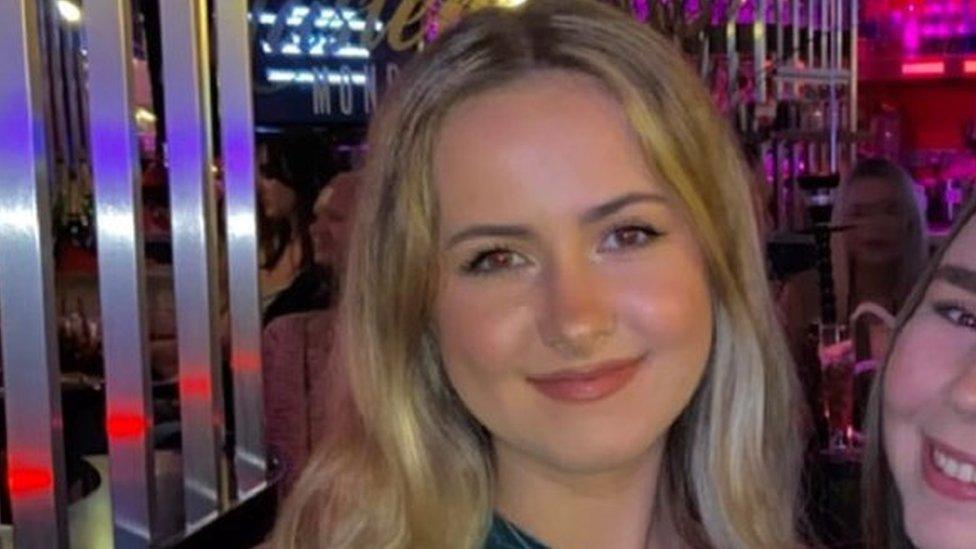
- Published10 November 2023
